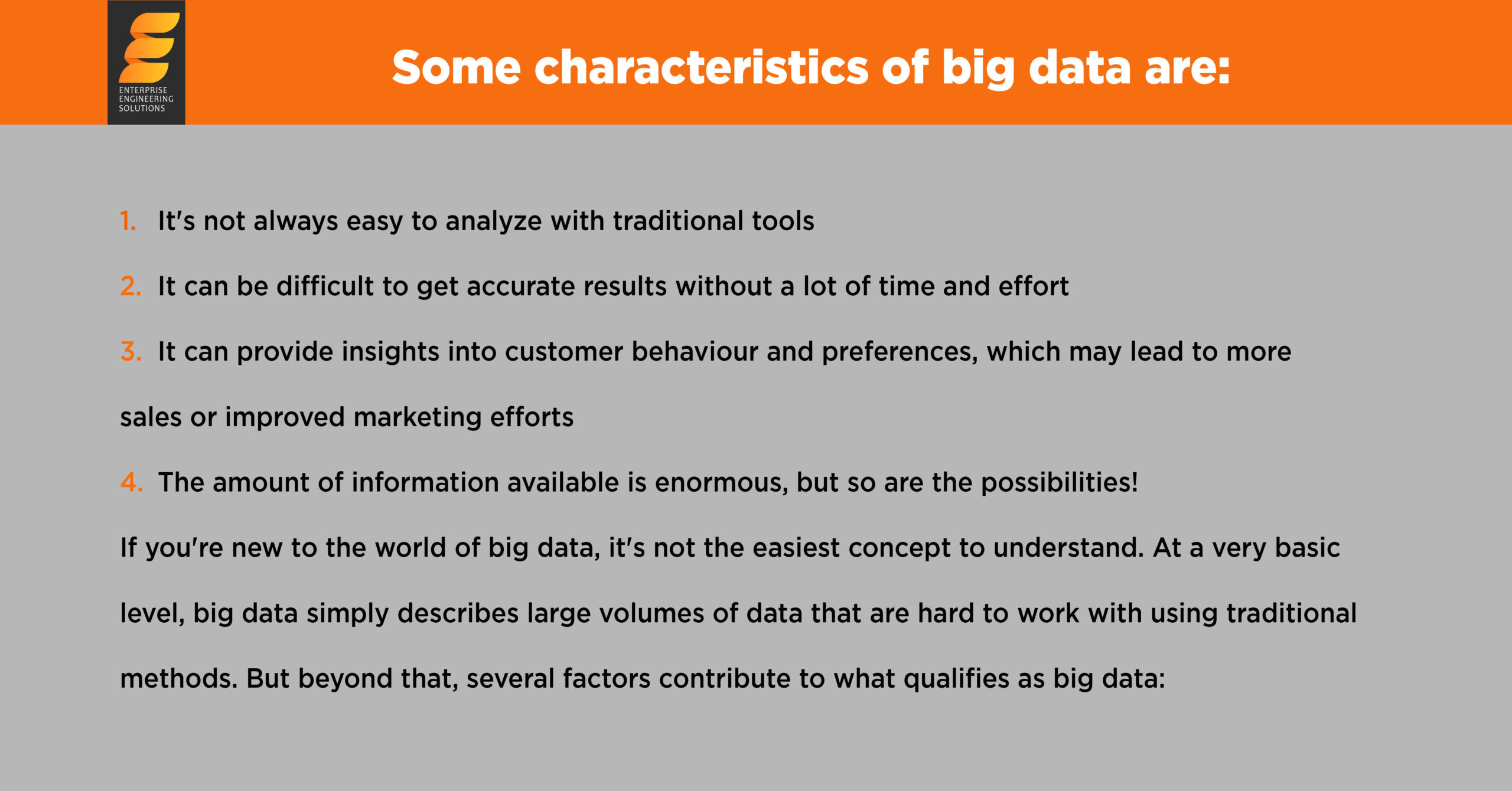Big data consulting is a service where experts work with you to help you identify, collect, and analyze big data in your business. Cloud data management services are often built on cloud infrastructure and provide a way for your company to store, manage, and protect its data. Big data is any dataset that’s too big for the tools you have to analyze it or your computer’s memory. If you’re using Excel to store and analyze your data, you’re probably only dealing with small data—but if your dataset is so large that Excel can’t handle it, you’re dealing with big data.
When you need help handling your big data projects, get in touch with EES Corporation, a big data consulting firm. We offer a wide range of cloud-based data management services that make it easier to work with massive datasets, no matter what format they’re in.
A Quick Overview of the Big Data
Big data is a term that refers to the fact that companies and organizations are now able to collect and analyze massive amounts of data. This is possible due to increased computing power, advances in technology, and the increasing amount of information people create online and offline. Big data can also be characterized by its velocity, variety, and veracity. Velocity refers to how quickly the data is being generated; variety refers to the different types of datasets being analyzed; veracity refers to how reliable or trustworthy the datasets are.
The volume of data that companies collect is staggering; even if you’re not actively collecting data as part of your business model, there are important insights to be gained from the information you already have. While you may already be familiar with some types of data analysis, like running reports on sales or website traffic in Google Analytics, there are a number of other areas where your business can benefit from taking the time to analyze your data.
Some Characteristics of Big Data are:

- It’s not always easy to analyze with traditional tools
- It can be difficult to get accurate results without a lot of time and effort
- It can provide insights into customer behavior and preferences, which may lead to more sales or improved marketing efforts
- The amount of information available is enormous, but so are the possibilities!
If you’re new to the world of big data, it’s not the easiest concept to understand. At a very basic level, big data simply describes large volumes of data that are hard to work with using traditional methods. But beyond that, several factors contribute to what qualifies as big data:
Volume, It’s all in the name! Big data describes data sets that are so large they’re difficult to deal with in more traditional ways. The amount of data can be so much that it occupies storage space on several servers instead of just one. This volume can include anything from tweets and emails to website traffic logs and medical records.
The first V, volume, measures how much data is generated – but there is more to this than simply considering the amount of information coming in. Different types of information are often measured in different ways; for example, one megabyte of text is equivalent to 1 million characters but only 8 million bits (a bit is a single binary digit).
Velocity, This refers to how quickly new information is generated, collected and stored. For example, every second, Facebook users share over 684,478 pieces of content. Logging all this content in real-time would be impossible—so companies use automated tools to do it for them and then go back through it later at their leisure.
The Second V, Velocity, describes how fast your company or organization receives new information from its sources.
Variety, Not all information is created equal, especially when it comes to big data. There’s a wide variety of information that companies need to manage, including a mix of structured data (data with fixed fields) and instruction.
The third V, variety, refers to how many different types of data are collected. Some sources may be more valuable than others depending on what the business needs; for example, if you’re working at a hospital, you may want easy access to patient health records, but that same type of data wouldn’t be relevant in an auto shop.
Big Data Consulting
It is a form of consulting that helps businesses understand big data capabilities and work with it to improve their operations or make other kinds of business decisions. Big data actually states the large amounts of data that companies collect across social media, search engines, and other places. EES can help its clients and customers sort any kind of heavy data to sort it out for them. As businesses grow, they accumulate more and more of this data, which can be analyzed for patterns.





